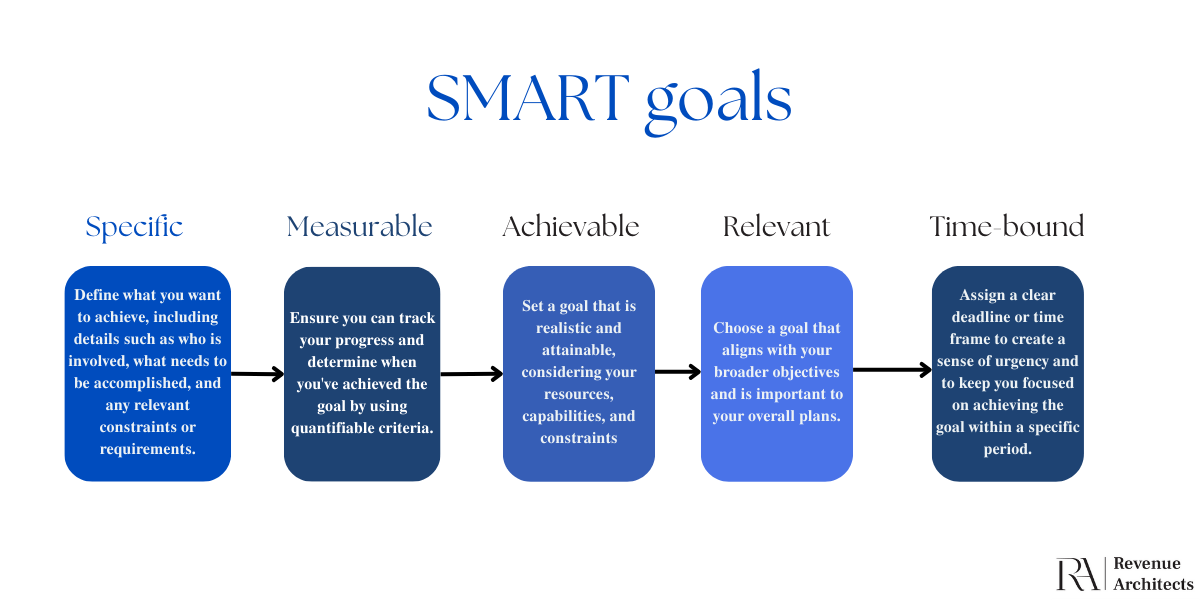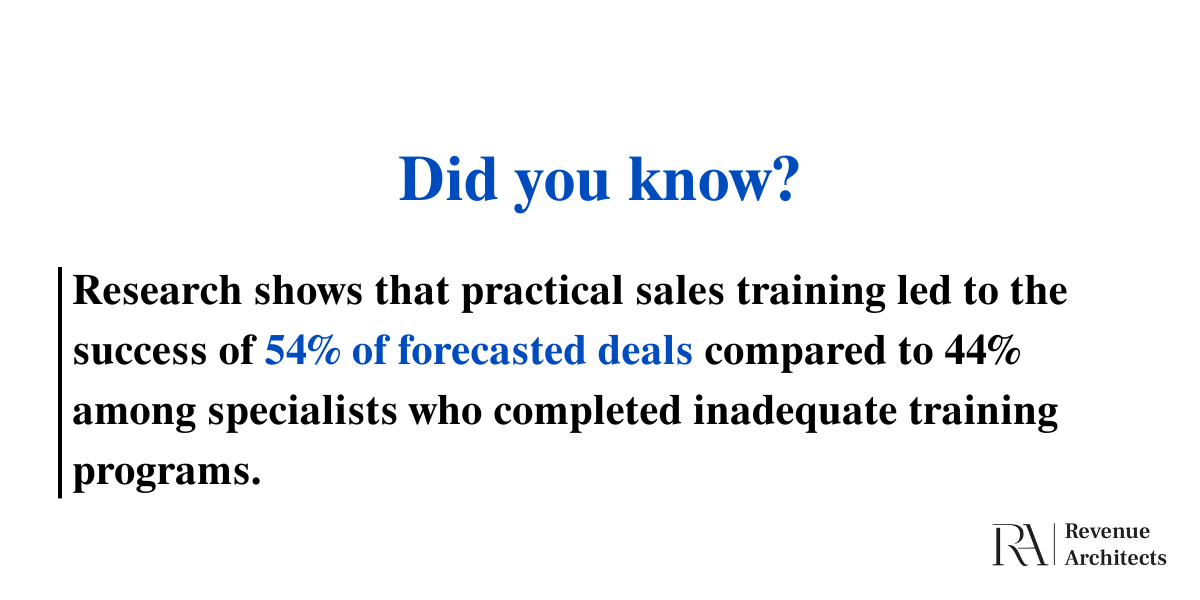Today, we will analyze the entire sales process and show you how to measure its effectiveness. The sales efficiency indicators we’ll discuss evaluate the sales process and its outcomes, particularly how these results align with the company’s sales goals and expected volumes over a given period. Sales efficiency can be visualized as a pyramid of various defining factors and their most significant results.
All sales-related activities and their outcomes are interconnected and ultimately impact two main sales efficiency criteria: revenue and profitability. As you may already know from following our blog, numerous factors influence sales efficiency. These can be improved through specialized sales training, coaching, and adjustments in approach.
Sales performance management is the practice through which sales representatives and managers track, manage, and optimize the sales process and its outcomes to achieve maximum productivity. Next, we will examine everything you need to know about sales efficiency, including the definition, measurement, and improvement of those aspects that can have the greatest impact on profit volume.
Sales efficiency can be measured both individually and at the team level, and it is crucial to track both. Sales professionals who want to increase their chances of success in 2024 should take several key steps to significantly enhance their progress toward this goal. This article presents 30 innovative and actionable ways to boost personal and team selling effectiveness in the coming year. Let’s dive in and explore how you can elevate your sales game and drive remarkable results in 2024.
3 Key Points
1. Establishing Interdepartmental Interaction Any sales department striving for success should collaborate closely with marketing and customer service departments. All customer-facing teams should work together to develop a shared understanding of attracting potential customers, navigating the sales system, prioritizing, and ensuring smooth and effective customer service.
Research shows that teams collaborating with these departments generate 32% more revenue, retain 36% more customers, and close 38% more profitable deals. While all relevant departments need to work cohesively, aligning the sales process with marketing is critical here.
2. Corporate Culture The importance of corporate culture for a consistently successful sales department cannot be overestimated. Successful sales departments are led by managers and senior executives, who prioritize providing their sales representatives with all the tools, knowledge, and resources necessary for effective sales execution. Sales representatives are given full access to relevant content, effective training, and practical guidance that can help them increase their work efficiency.
Sales representatives who feel supported by their leadership are more satisfied with their positions, positively affecting their productivity.

3. Performance Monitoring Successful sales departments never allow themselves to relax. Managers and sales representatives should be involved in tracking sales metrics and key performance indicators and be held accountable for them, continuously developing strategies to improve these results.
Performance Monitoring
Sales managers should also ensure that all their employees have access to relevant data and means of improving them. This will help the department stay on track.
Many sales managers are surprised that mid-level employees can become a potent growth factor. There is often an unconscious tendency in the sales department to focus all efforts on those who perform worse and distribute all rewards among the top performers. However, paying primary attention to mid-level employees can be an effective way to stay ahead of competitors.
Moreover, a 5% increase in productivity among mid-level employees yields over 70% more revenue than the same productivity increase among top managers. Many sales department leaders mistakenly believe the secret to success lies with standout leaders. Still, the reality is that mid-level performers bring the highest returns and can become the foundation of victory over competitors.
Sales Enablement Software
One of the best ways to ensure the successful operation of sales departments in 2024 is to implement sales enablement software. Such platforms help employees store, track, and manage content, guides, and other resources necessary for effective sales execution. Sales enablement software optimizes many components they need access to throughout the sales cycle, allowing them to focus on specific work instead of content management.
Systematic Work
Ultimately, systematic work is the key to successful sales at the department level. Any sales representative can have a good month or quarter, but the key to success is consistently meeting or exceeding planned sales volumes over an extended period. Employees must be able to continue reaching or surpassing goals while adapting to growing customer needs and changing market conditions.
Thirty Ways to Increase Sales Efficiency
If your personal or team sales efficiency metrics need improvement, the following steps will help you achieve this.
Ways to Increase Personal Sales Efficiency
Here are twelve specific tips that individual sales representatives can follow to increase efficiency.
1. Strengthen the Right Mindset
Your mindset can help you move far ahead in sales—or fall back. Your thinking directly affects your emotions, often driving behavior, leading to success or failure.
All else being equal, sales representatives with a mindset that allows them to stay optimistic and adapt when things go off-plan will succeed in situations where more pessimistically minded specialists will give up. A growth mindset can become a powerful support for successful sales execution. The mindset is also important because customers are attracted to salespeople who position themselves as experts in their field. Confidence and a drive for success can help sales representatives establish themselves as reliable consultants.
2. Study Your Vertical Market
All sales professionals know how important it is to keep up with competitors. However, it is equally important to thoroughly understand how your offering fits into the relevant vertical market.
Sales representatives should take the time to understand how their vertical market works. This should not be too burdensome or take you beyond your usual duties. Your business acumen can often be improved by reading business publications and publicly available financial reports of companies in your segment.
3. Be Organized
Any professional will confirm that there are always too many sales tasks to complete in one day.
Since the process involves handling multiple parallel tasks, sales representatives should strive to develop and maintain a specific routine to stay on top and achieve set results. It should help them stay motivated and ready to close new deals.
This routine is highly individual and can look different for each sales representative. There are no universal recipes here, so developing a routine that suits you best may require a period of trial and error. Whatever approaches you choose, they should maintain order, stability, and predictability in your sales activities. If an organization is not your strong suit, find someone who can help you create a routine, as it is necessary for successful sales.

4. Track Your Performance Indicators
Sales professionals should try to track their key performance indicators. Progress toward goals must be tracked both individually and at the department level to manage and improve the sales process.
5. Set SMART Goals
One of the most reliable ways to increase sales efficiency is to set SMART goals. This method helps sales representatives and managers set realistic and ambitious goals. To ensure better control over their achievement, it is worth sharing your sales goals with team members and managers or posting them in an open area so others can track your progress. When setting goals, also raise the bar. Your goals should not only be achievable but also drive progress.

6. Focus on Professional Growth
Effective employees are often characteristic of companies that value learning and professional growth. However, regardless of the resources available to the company, the most successful sales representatives are beginner employees interested in improving their skills. They do not wait for training and mentors to become available; they seek them out and actively participate in events that help them improve their sales.
7. Find an Experienced Mentor
Learning from an experienced specialist can be a highly effective way to increase your sales efficiency. Besides gaining other significant benefits, this indicator can increase by almost 90%. If your company does not have a corresponding program, you can seek help from someone outside. A fresh perspective can be as beneficial as advice from one of your colleagues.
Revenue Architects specializes in sales training, and we provide online coaching sessions that are led by two sales veterans, Mario Krivokapic and Noam Tamari Wekser. If you are not yet ready for coaching sessions, we suggest you read our blog and our books.
8. Identify Leading and Lagging Indicators
To increase sales efficiency, you need to analyze both leading and lagging indicators.
Lagging indicators are always related to achieved results following specific actions. They include, for example, revenue and profitability.
Leading indicators, however, relate to actions taken by sales representatives to achieve results. These include the number of calls and follow-up emails sent, which somehow affect revenue and profitability.
Only by considering both indicators can sales representatives hone their skills and make necessary adjustments. So, develop a plan for regularly tracking them.
9. Be Creative in Problem-Solving
Top-notch sales professionals know that, as important as training is, nothing can replace the skills of creative and unconventional critical thinking. Sales is a field that constantly changes according to market trends and customer preferences. Therefore, sales representatives must be flexible, easily adaptable, and creative to succeed.
10. Celebrate Your Victories
In the sales department, special attention is paid to improving growth areas and eliminating bottlenecks in the sales system. However, celebrating your victories and highlighting successful decisions is equally important. An Effective sales professional should not hesitate to emphasize their successes. Sharing victories and achievements with your manager and colleagues is normal. However, it is also important not to overdo it.
11. Use All Sales Channels
Today, buyers use a variety of platforms. Corporate clients, for instance, interact with sales representatives through ten or more channels. Therefore, you should learn to approach buyers through each channel used in your industry.
12. Increase Sales Volume
Almost 80% of sales department leaders note that sales volume directly affects efficiency.
If your sales volume is below average, try to identify and improve the reasons. Often, this can be done through pretty simple techniques. For instance, setting up automation for repetitive tasks just once can bring long-term benefits.
Ways to Increase Team Sales Efficiency
Here are eighteen tips sales representatives and managers should follow to increase sales efficiency across the entire department. Sometimes tips related to people can be more effective than the ones related to software improvement. After all, every sale is driven by human nature.
13. Put People First
As strange as it may sound; high sales efficiency does not come down to just key performance indicators. Managers must create an environment where sales representatives feel confident, understand their significance, and trust enough to reach a new level.
So, get to know your employees personally—maintaining professional boundaries. Sales representatives will show the best results if they have a trusting relationship with their leadership.
14. Encourage Diverse Perspectives
For the same purpose, leaders need to encourage a wide range of perspectives, approaches, and work styles. When employees meet the minimum required criteria, showing some individuality in their work is perfectly normal—and even beneficial.
Departments that apply diverse approaches work better, so managers should ensure room for various viewpoints. Creating an environment where differences are encouraged requires consistency.
15. Develop a Basic Minimum of Requirements
To foster responsibility among subordinates; it is necessary to jointly develop a basic set of core values and non-negotiable principles that everyone will adhere to.
This does not mean resorting to micromanagement—quite the opposite. A common language based on shared ideals will help create conditions where everyone adheres to a common understanding of core issues while maintaining the freedom to do their work most conveniently. Such a corporate culture will undoubtedly ensure high sales performance.
16. Analyze Department Metrics
Sales managers should regularly review overall metrics to help employees prioritize new deals. Particular attention should be paid to advice in the early stages of the sales process. Sales monitoring software helps professionals visualize relevant data and correlate it with each other.
When analyzing team sales data, it is also essential to unify approaches. Pay attention to standardizing your department’s understanding of deal stages and transitions. In particular, everyone should understand the difference between cold and warm leads. This ensures that decisions are data-driven and consistent.
17. Find Time for One-on-One Meetings
Mentorship is essential to increasing sales efficiency. Even those sales managers whose duties do not include it should carve out time for personal meetings with each department employee. Leaders should actively interact with sales representatives and monitor their workflow.
Additionally, one-on-one meetings are a great way to motivate and reward your employees for specific achievements. Knowing why an employee’s performance level is critical to improving it.
18. Analyze Results as a Department
The data obtained during sales processes is intended for joint use. Although only sales managers are responsible for developing strategies, all department employees should be aware of how the team works and performs individually.
Remember that high performance stems from trust. Working with data together will demonstrate transparency, solidarity, and the team’s collective responsibility for sales results.
19. Encourage Peer Learning
For many sales representatives; there is no better way to increase sales efficiency than learning from a colleague. Do not hesitate to pair your employees based on their abilities and experience. Top specialists also benefit from working with underperformers. Mentoring a less experienced employee fosters confidence, empathy, and creative skills.

20. Set Achievable Tactical Goals
No sales department can achieve strategic goals in a quarter or year.
Instead of focusing solely on significant and long-term goals, set more specific, intermediate tasks for your employees, which can be called tactical. They should be broken down into stages, achievable, and help reach the larger goal. Setting SMART goals aligns with this approach.
21. Control Processes Without Micromanagement
Sales managers should be aware of the clear line between being informed about each employee’s activities and being overly involved in their day-to-day tasks. Sales managers who overstep here will quickly lose their team’s trust. Therefore, they should always be available and able to guide work subtly and directly. At the same time, they should avoid micromanagement at all costs.
22. Be Selective When Hiring New Employees
The hiring process is often underestimated in its impact on sales performance, but it can be significant. Sales managers should avoid hiring solely based on a candidate’s merits at their previous job. There are other equally, if not more, essential factors in determining how well a candidate fits.
In particular, recruiters should consider how a new employee will fit into your corporate culture and whether their experience will complement your team’s existing skills. Moreover, many successful sales departments hire employees for qualities not directly related to sales.
They value work ethic, trainability, and interest in the profession more than standout individuals. Typically, the best employees succeed through learning. Hiring people with the right attitude will build a department with excellent sales performance much faster than focusing on standout individuals.
23. Optimize Your Sales Department Structure
There are three main models of sales department structure: linear, conveyor, and modular. Determining which best meets your team’s and target market’s needs is essential. Each has advantages and disadvantages, and not all will suit every case. Sales managers should carefully analyze which structure and processes best match your team’s strengths and customer needs.
24. Regularly Evaluate Your Sales Strategy and Methodology C
ustomer demands and market trends change quickly, and managers must stay aware of these changes to maintain decent sales performance. At least once a quarter, the entire department should check the adopted sales strategy and methodology to ensure their adequacy and effectiveness.
25. Investing in Quality Training
Training is one of the things that distinguishes successful sales departments from the rest. However, it must be the right kind.
Research shows that practical sales training led to the success of 54% of forecasted deals compared to 44% among specialists who completed inadequate training programs. Additionally, the former missed 5% fewer deals than the latter. This is one of those areas where investments always pay off, so take the time to find out which courses are most effective in meeting your department’s specific needs.

26. Train Leadership Personnel
Speaking of training, it is also important to ensure that all your company’s employees in sales leadership positions undergo thorough training. Sales managers and mentors themselves need training to be as effective as possible.
27. Improve Customer Service Quality
To increase sales efficiency, do not forget about clients who have already made a deal. Customer satisfaction directly strengthens the referral network, and increasing the retention rate by just 5% can increase profits by 25-95%. Accordingly, excellent customer service quality helps retain them and increases the likelihood that they will recommend you to others.
28. Expand Your Technical Arsenal
The technical arsenal includes all the technological tools specialists use throughout the sales process. Nowadays, all sales departments have minimal technical experience. However, the technological toolkit is often used inefficiently for various reasons. A well-organized technical arsenal should consist of tools that serve a specific purpose and, ideally, are easily integrable. Popular technical tools include customer relationship management (CRM) software, sales monitoring systems, and sales enablement toolkits.
29. Incentivize Employees with Sales Commissions
Your sales compensation plan should be linked to their performance. Many sales departments use a base salary plus commissions and bonuses model. The latter can encourage a particular sales behavior that managers aim to develop.
30. Improve Your Lead Generation System
If your sales and marketing departments have not updated the ideal customer profile or buyer personas in a while, it is time to do so.
Also, consider these aspects in the context of your active lead-generation campaigns. Constantly auditing how your target audience responds to your marketing materials will help ensure a steady flow of high-quality leads.
How to Measure Sales Efficiency?
To control your sales efficiency, you must first measure it. It is important to track certain metrics over a long period regularly. This is how sales departments accurately evaluate their effectiveness.
Several metrics can help assess the sales efficiency of an individual or the entire department. The most commonly used ones include:
- Deal Close Rate
- Achievement of Sales Volume Targets
- Sales Cycle Duration
- Number of Deals to Quota Achievement
- Utilization of Selling Content
- Training Completion Rate
- Conversion Rate
- Sales Revenue
- Customer Acquisition Rate
- Retention Rate
- Average Purchase Value
Additional metrics also assess sales efficiency according to the specific company’s goals. Sales monitoring software or enablement tools can help specialists track, control, and visualize some of these metrics.
How to Systematically Increase Sales Efficiency
Ideally, all specialists and departments should strive for continuous improvement in their sales efficiency. Once some goals are achieved, companies should set and reach more extensive and ambitious ones to realize their potential.
Sales departments aiming to form an ethos of continuous improvement should focus on three key points:
- Right Mindset: Sales professionals should have a flexible mind and optimistic outlook to achieve their goals.
- Proper Training: While training can greatly impact sales efficiency, only programs of a certain level can make a significant difference. Be selective in choosing training forms for your team. Once you find suitable programs, make them widely accessible.
- Right Approach to Work: Increasing sales efficiency requires careful tracking and data analysis. Sales professionals should constantly analyze their successes and challenges to improve continuously. Accountability and follow-through are crucial components of successful sales.
Ultimately, the effectiveness of an individual specialist or the entire department reflects the effectiveness of their leadership. Therefore, sales department leaders should regularly consider how to systematically increase their subordinates’ performance. They should ask themselves the following questions: Am I tracking sales metrics? What factors have the greatest impact on personal and team sales efficiency? How can we improve performance this quarter?
And if the response is inadequate or unclear, they should be aware that there are professional coaches available to assist. Yes, that would be us.

